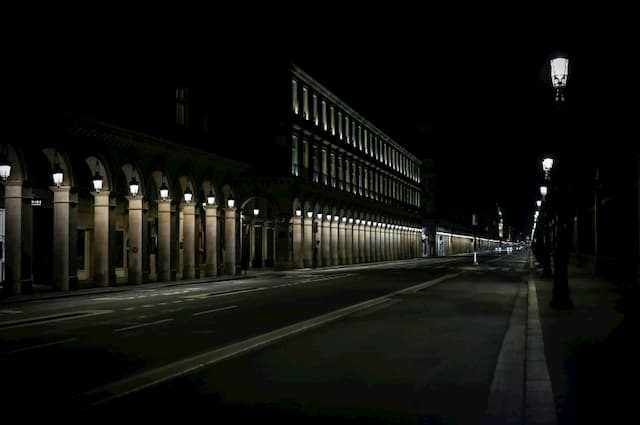Coronavirus: Towards the Establishment of a “State of Health Emergency” in France

Faced with the increase in the number of patients and deaths linked to the coronavirus, Parliament must vote for the establishment of a state of health emergency, in particular, to support the economy.
France is subject to historic confinement to wage a “war” on the coronavirus, and the Parliament must vote on Thursday 19th March and Friday 20th March 2020 “The state of health emergency” while the number of patients increases exponentially.
Faced with an “unprecedented crisis”, in a country almost stopped, the government authorized Wednesday the establishment of a “state of health emergency”, accompanied by emergency measures to support the economy.
It will be declared by decree after the adoption of the bill. The National Assembly and the Senate will be informed “without delay” of the measures taken during this period.
The coronavirus is spreading more and more quickly and the death toll increased on Wednesday, the second day of confinement ordered by the government, with a risk of saturation of the emergency services.
Hospitals are now treating 3,626 patients, 931 of whom are in intensive care. Among these most serious cases, half are aged “less than 60 years”, insisted the Director-General of Health, Jérôme Salomon by announcing a total of 264 deaths (89 additional in 24 hours).
“No place for them”
In addition to the difficult situation in the Grand Est, the picture is also tightening in Ile-de-France.
The state of play is already dramatic in the nursing homes, alerted Gaël Durel, president of the Association of coordinating doctors and of the medico-social sector: “When the virus enters (an) establishment, we see rates of 75 % of residents affected by the virus and catastrophic mortality rates, beyond 20 to 30%, “he said on RTL.
“There is no room for them in the hospital, they are too vulnerable (… we will privilege, which is quite understandable, people who are more likely to be able to get out of it”.
A situation experienced by Italy, which entered containment for almost two weeks.
It is also the fear of experts of saturation of emergencies that led the Head of State Emmanuel Macron to announce Monday strict containment measures for “at least 15 days”.
Read also: Coronavirus: the sale of paracetamol restricted to one box per person since Wednesday

Over 4000 fines
One hundred thousand members of the security forces were deployed, imposing a fixed fine of 135 euros in the event of “violation of the prohibitions on moving outside one’s home”. In 24 hours, 4,095 fines were drawn up, according to the Minister of the Interior.
The government has recognized “logistical difficulties” in the supply of masks, allocated “as a priority to carers”, who are nonetheless alarmed by their destitution. Minister Florence Parly announced that 5 million Army surgical masks have been made available to the Ministry of Health.
According to Professor Salomon, a total of 25 million masks are being delivered to pharmacies and healthcare establishments.
” Thank you! “
Aware of the vital role they play, the population has shown its support and respect for health personnel, on the front line in the face of the epidemic: at 8 p.m., in Paris and in the regions, rounds of applause sounded: hisses and “Thank you!” Were notably heard in the streets of Mulhouse, particularly struck.
The first air transfer of six patients also took place from Alsace to military hospitals in Toulon and Marseille. The deployment of a military hospital is also planned in Alsace.
The government will also set up an air system, in conjunction with Air France, to allow French people stranded abroad due to the pandemic to return home, three ministers announced on Wednesday evening.

Right of withdrawal
Concerns about the very functioning of the country are mounting, despite assurances from the government, which on Wednesday examined provisions to restrict certain freedoms or order requisitions.
It can take measures by ordinance to support businesses and limit layoffs.
The government has also called on workers in essential sectors to continue working. “We must be able to feed ourselves, so that French families can go to the stores of the large distribution and buy food products”, according to the Minister of the Economy, Bruno Le Maire.
Medef’s deputy president, Patrick Martin, warned of a possible halt in economic activity, including in essential sectors, due to a “brutal change in attitude” among employees, ready to exercise their right to withdrawal after the introduction of sanitary measures.
Cashiers, in particular, are alarmed: photos circulated on social networks showing crates of food stores protected by simple plastic films stretched at the level of the faces.
Olivier Véran announced that the government would have to close certain markets “where we see crowds” or “which have a lot of stalls”, to avoid gatherings.
Some regions have taken measures to deal with the influx of city dwellers who have confined themselves to second homes: rentals prohibited in the Morbihan islands, beaches and water sports in Oléron: “We are in confinement, not on vacation”, storms the president of the island’s communes.
Enjoyed this? Get the week’s top France stories
One email every Sunday. Unsubscribe anytime.


